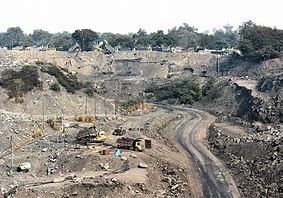UPSC Daily Current Affairs: 26 July 2024 | Current Affairs & Hindu Analysis: Daily, Weekly & Monthly PDF Download
GS3/Defence & Security
KARGIL VIJAY DIWAS
Source: Money Control
Why in news?
Kargil Vijay Diwas, celebrated annually on 26th July, marks India's triumph over Pakistan and pays tribute to the soldiers who displayed immense bravery and sacrifices during the Kargil conflict.
Background
- India's hard-won victory in the Kargil War highlighted the enduring challenges of warfare at high altitudes, which can be as perilous as the enemy itself.
The Kargil War
- The conflict commenced with Pakistani infiltrators crossing the Line of Control (LoC) and seizing strategic positions in Kargil, Ladakh.
- Initially mistaken for jihadists, the infiltrators were later revealed to have direct backing from the Pakistani state.
- From mid-May to July, Indian forces gradually regained control of crucial positions, despite facing significant casualties.
- The Indian Army officially declared the complete withdrawal of Pakistani troops from Kargil on July 26.
Trial by Altitude
- Kargil's location at high altitudes posed significant challenges, with severe cold, thin air, and rugged terrain impacting both soldiers and equipment.
- The extreme cold in Kargil, with temperatures plummeting to -30 degrees Celsius in winter, severely affected operations and equipment functionality.
- The reduced oxygen levels at high altitudes led to acute mountain sickness among soldiers, affecting their performance and health.
- The challenging terrain limited mobility, favored enemy positions, and constrained operational strategies.
Victory Against All Odds
- Despite facing relentless enemy attacks and harsh conditions, the Indian Army successfully reclaimed control of Kargil's peaks from intruders.
- The Army adapted its tactics by focusing on acclimatization, training, and utilizing improved equipment to overcome the challenges posed by high-altitude warfare.
- Strategies involving overwhelming firepower and innovative maneuvers, such as artillery barrages and high-altitude assault techniques, were crucial in securing victory.
- The lessons learned from the Kargil War enabled the Indian armed forces to enhance their preparedness for similar conflicts in the future.
GS3/Science and Technology
DIGITAL POSTAL INDEX NUMBER (DIGIPIN)
Source: Hindustan Times
Why in news?
The Department of Posts has introduced a beta version of DIGIPIN (Digital Postal Index Number) for public feedback and expert evaluation. This innovative system is aimed at enhancing the efficiency and accuracy of postal services.
About DIGIPIN
- DIGIPIN is an initiative launched by the Department of Posts in India.
Purpose and Objective
- The primary goal of DIGIPIN is to establish a geo-coded addressing system throughout India.
- It is intended to create a National Addressing Grid, simplifying address solutions for the seamless delivery of public and private services to citizens.
Development and Collaboration
- DIGIPIN was developed by the Department of Posts in partnership with IIT Hyderabad.
- It serves as a crucial foundation for Geospatial Governance and provides support to various ecosystems.
Features
- DIGIPIN enables the logical location of addresses with directional properties embedded in it.
- It assigns a unique code to each location, making precise identification possible.
- As India progresses in its digital transformation of postal services, DIGIPIN plays a pivotal role in enhancing address accuracy and accessibility.
GS3/Science and Technology
DARK OXYGEN
Source: Hindustan Times

Why in news?
Researchers have found a phenomenon termed "dark oxygen" originating in the deep ocean, as per a recent study in Nature Geoscience. This discovery showcases oxygen being emitted from mineral deposits located 4,000 meters beneath the Pacific Ocean's Clarion-Clipperton Zone (CCZ).
Key takeaways
- Oxygen, crucial for life on Earth, has traditionally been linked to photosynthesis, the mechanism through which plants and algae produce oxygen using sunlight.
- New findings challenge this conventional understanding by introducing the concept of dark oxygen.
What Is Dark Oxygen?
- Dark oxygen is generated without sunlight, deep beneath the ocean's surface.
- Polymetallic nodules, mineral masses present on the ocean floor composed of metals like manganese, iron, cobalt, nickel, copper, and lithium, are pivotal in this novel process. These nodules can produce oxygen via electrochemical activity even in darkness.
Implications and Significance
- Previously, oxygen was thought to solely originate from photosynthetic organisms, such as plants and algae.
- The concept of dark oxygen poses an alternate oxygen source, prompting intriguing inquiries into Earth's life origins.
Where Did Dark Oxygen Come From?
- Dark oxygen was detected 4,000 meters below the ocean's surface, specifically in the Clarion-Clipperton Zone (CCZ) of the Pacific Ocean.
- Its generation in the absence of sunlight hints at the potential existence of life pre-dating the emergence of photosynthesis.
GS3/Environment
INDIA’S ILLEGAL COAL MINING PROBLEM
Source: Hindustan Times
Why in news?
Recently, three workers died of asphyxiation inside an illegal coal mine in Gujarat’s Surendranagar district.
Context:
- Three workers died of asphyxiation inside an illegal coal mine in Gujarat’s Surendranagar district.
Background:
- In June 2023, an illegal mine collapse in the Dhanbad district of Jharkhand claimed three lives, including a ten-year-old child.
- In October 2023, at least three individuals perished in Paschim Bardhaman district, West Bengal, due to a coal mine collapse during illegal extraction.
About Coal mining in India
- Coal nationalization occurred in two phases: coking coal in 1971-72 and non-coking coal mines in 1973.
- The Coal Mines (Nationalisation) Act, 1973, governs coal mining eligibility in India.
- Illegal mining is a law and order problem falling under State jurisdiction.
Reasons for Rampant Illegal Coal Mining in India
- Illegal mining predominantly occurs in abandoned mines or shallow coal seams in remote areas.
- Factors contributing to illegal coal mining include:
- High demand for power exceeding legal coal supply.
- Proximity of coal-rich areas to impoverished communities leading to mining due to poverty and unemployment.
- Inadequate monitoring and enforcement in remote regions fostering the growth of “coal mafias.”
- Political support for illegal mining hindering enforcement efforts.
- Utilization of rudimentary mining techniques due to limited safety equipment and low operational costs.
- Historical dependence on mining for local economies, sustaining communities through illegal operations.
GS3/Economy
GREENIUM
Source: Money Control
Why in news?
Chief Economic Advisor V. Anantha Nageswaran recently emphasized the importance of private investors committing to sustainable investments, noting the inadequate 'greenium' observed in India's sovereign green bond offerings.
About GREENIUM :
The concept of greenium, or green premium, revolves around the pricing advantage linked with green bonds. It signifies the yield discrepancy between a green bond and a conventional bond from the same issuer.
- Green Bonds vs. Traditional Bonds:
- Green bonds, characterized by lower interest rates compared to regular government securities, draw investors due to their focus on sustainability.
- Investors, enticed by the allure of supporting environmentally beneficial ventures, accept these reduced yields.
- Benefits of Green Projects:
- Long-term sustainable projects mitigate both physical and financial risks, prompting investors to settle for diminished returns.
- Issuers, in turn, gain cost advantages through the reduced coupon payments on green bonds.
- Green Bonds Overview:
- Green bonds, issued by various entities, serve to finance eco-friendly projects like renewable energy initiatives and energy-efficient schemes.
- These projects align with national or global green criteria, fostering positive environmental impacts.
GS3/Economy
MSDE Revamps Model Skill Loan Scheme
Source: Business Standard
Why in news?
The Ministry of Skill Development and Entrepreneurship (MSDE) revamped the ‘model skill loan scheme’ for skill development courses, with a fresh maximum loan limit of ₹7.5 lakh. The earlier (launched in 2015) Credit Guarantee Fund Scheme for Skill Development (CGFSSD) had a maximum loan limit of ₹1.5 lakh.
Challenges Faced by the CGFSSD
- Low fund utilisation under the scheme:
- Loans amounting to ₹115.75 crore had been extended to just 10,077 borrowers as of March 31, 2024, mainly due to the low ticket size of loans (up to ₹1.5 lakh).
- Inflation:
- Course costs and fees rose due to inflation, excluding many high-cost courses from the scheme.
- Less number of lending institutions:
- Previously, only member lending institutes of the Indian Banking Association (IBA) were allowed to lend, resulting in low uptake by both private and public sector banks due to their limited reach.
Need for a Revamped Model Skill Loan Scheme
- To fill the skill gap:
- Only 5% of the so-called skilled workforce is formally skilled, indicating a significant skilling gap that needs to be addressed.
- Adapting to rapid technological and societal shifts:
- Given the fast-paced technological and societal changes in India and globally, the education systems and job markets must evolve to stay relevant and work towards a vision for 2047.
- To integrate new-age learning:
- In the increasingly market-led 'Skill Economy,' it is crucial to incorporate new-age learning into the skill development ecosystem.
The Revamped Model Skill Loan Scheme
- Background:
- In her Budget 2024-25 speech, the Finance Minister introduced the model skill loan scheme.
- About the scheme:
- The scheme aims to provide easy access to advanced-level skill courses that may pose financial barriers for many deserving students and candidates seeking futuristic and industry-relevant skills.
- The scheme empowers youth by offering financial support for advanced skilling through collateral-free loans up to ₹7.5 lakh.
- Upgrade over the earlier scheme:
- The maximum individual loan size eligible for credit guarantee cover has been increased to ₹7.50 lakhs from the previous limit of ₹1.50 lakhs.
- The lending network has been expanded to include Non-Banking Financial Companies (NBFCs) and small finance banks, moving beyond only IBA banks.
- The revised scheme now allows access to a broader range of skill courses, not limited to national skill qualification framework (NSQF)-aligned courses.
- Non-NSQF courses on the Skill India Digital Hub platform are now eligible under the scheme.
- Significance:
- By ensuring uninterrupted credit flow in the skilling sector and providing low-income youths with affordable finance for specialized skill courses, this scheme is anticipated to benefit 25,000 students annually.
- Aspiring candidates can select from various skill courses in sectors like healthcare, IT, AI-data science, cloud application, digital marketing, gaming, drone technology, etc., offering significant placement opportunities and potential for international mobility.
GS3/Science and Technology
Listeria Outbreaks in the US and Canada
Source: Indian Express
 Why in News?
Why in News?
Two separate outbreaks of listeria, a bacteria that can contaminate food, have been reported recently in the United States and Canada.
Outbreak in the United States: The U.S. Centers for Disease Control and Prevention (CDC) declared an outbreak on July 19 across 12 states. It is linked to the consumption of undercooked meats sliced at deli counters, causing two deaths and 28 hospitalizations.
Outbreak in Canada: On July 17, a public health notice in Canada reported 12 cases of listeria, resulting in two deaths. Both countries are actively responding to contain the spread of infection.
About:
About Listeria: Listeria or Listeria monocytogenes is a type of bacteria found in various environments like soil, water, and even animal and human waste.
Listeriosis Symptoms: Listeria-contaminated food can lead to listeriosis, with symptoms like vomiting, nausea, cramps, severe headache, constipation, and fever.
Vulnerability: Certain groups like individuals with weakened immune systems, pregnant women, and the elderly are more vulnerable to listeria infections. Pregnant women face higher risks including pregnancy complications and potential harm to the newborn.
Treatment: Treatment for listeriosis depends on the severity of the infection. If it spreads beyond the intestines, it can lead to invasive listeriosis, which may require antibiotics.
GS-III/Science and Technology
NOvA (NuMI Off-axis νe Appearance) Experiment
Source: The Hindu
 Why in News?
Why in News?
New data from the NOvA experiment deepens the mystery surrounding the mass of Neutrinos.
About NOvA (NuMI Off-axis νe Appearance):
- It's a test to explore one of nature's hardest-to-find particles: neutrinos.
- Managed by the U.S. Department of Energy's Fermi National Accelerator Laboratory near Chicago, USA.
- Fermilab directs neutrinos 500 miles north to a 14,000-ton detector in Ash River, Minnesota.
- Scientists study how these particles alter their type as they move, a process called neutrino oscillation, by observing neutrinos and their antimatter counterparts, antineutrinos, in both locations.
- The NOvA project aims to understand the hierarchy of neutrino masses.
What are Neutrinos?
- They are tiny particles found in atoms.
- They have no electric charge, very little mass, and a spin of 1/2 unit.
- They move very quickly, almost as fast as light.
- Neutrinos are part of a group of particles known as leptons, which do not feel the strong force.
- Neutrinos are sometimes referred to as 'ghost particles' because they hardly interact with anything else.
- Despite this, they are the most commonly found particle in the entire universe.
- Approximately 100 trillion neutrinos pass through your body every second without causing any harm.
- Whenever atomic nuclei combine (like in the sun) or split apart (as in a nuclear reactor or particle accelerator), they generate neutrinos.
|
44 videos|5283 docs|1115 tests
|
FAQs on UPSC Daily Current Affairs: 26 July 2024 - Current Affairs & Hindu Analysis: Daily, Weekly & Monthly
| 1. What is the significance of Kargil Vijay Diwas in Indian history? |  |
| 2. How did the Indian armed forces overcome the challenges of fighting in high altitudes during the Kargil War? |  |
| 3. What is the recent Supreme Court decision regarding states' right to levy tax on mineral rights? |  |
| 4. What was the dissenting opinion by Justice Nagarathna on the Supreme Court's decision regarding mineral rights taxation? |  |
| 5. How did the Indian armed forces achieve victory against all odds in the Kargil War? |  |
















